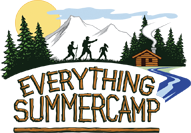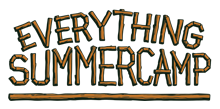Hey, Lexicon Lovers!
Boast your blooming vocabularies with us today as it’s National Thesaurus Day. What better way to flex your lexis than by referring to the handiest reference book since the Dictionary? Peter Mark Roget published the first modern Thesaurus in 1852, 46 years after Noah Webster came out with his Dictionary.

Peter Roget—as in ‘Roget’s Thesaurus’—was born this day 236 years ago in 1779. His painstaking publication of wordlists categorized by synonyms has proven extremely useful throughout the years. Never having been out of print, it’s still in largely popular use today. I have one sitting on my desk, in fact, as I currently write this Blog post.
Maybe not everyone owns their own Thesaurus, but the folks at Dicitonary.com felt compelled to share a free thesaurus online as well (Thesaurus.com). Extremely helpful, visit Dictionary/Thesaurus.com to strengthen and assist your own writing!
There’s never just one way to convey a story, an idea, or even just a single sentence. Showing a knack for finding the precise words that perfectly convey your thoughts and stories is what good writing is all about. Using a Thesaurus is a great way to expand your vocabulary and sharpen your writing skills.
Just as Native American tribes all spoke different languages and celebrated different cultures all across the land, summer camps have different names for their amenities and activities. Luckily there are lots of words that have similar meanings all throughout our language. Here’s some fun with synonyms and words associated with summer camp:
GEAR, n.
Lots of people call the stuff that they bring along camping with them their ‘gear’. While they may be more popular in other fields or activities, the following words would work just as well…You could say:
accoutrements, apparatus, equipment, kit, supplies, tackle, and trappings
CABIN, n.
Summer camps all use their own different names for their campers’ sleeping quarters. You might hear ‘cabin’ or you might here any one of the following terms:
bunks, dorms, huts, lodges, teepees, tents, and yurts
INDEPENDENCE, n.
Spending time away from home, away from your parents, is a big step toward becoming a more independent person. You can express the growth promoted by summer camp with any of these words:
autonomy, freedom, individualism, maturity, personal growth, self-betterment, self-reliance, and self-sufficiency
FRIEND, n.
They all have different names (and nicknames that you might have given them), but here are some other words you can use to refer to a friend:
acquaintance, ally, buddy, chum, comrade, companion, boon companion, pal, partner, and playmate
Using synonyms to substitute other words makes writing (and reading) great fun—for instance, you could say:
“My summer camp stay is sure to be fun.”
Or you could say:
“My summer camp trip is bound to be a blast!”
Or you could say:
“My summer camp excursion is likely to be a rollicking good time!”
Next time you’re writing about your camp experiences, whether it’s in a letter home, a personal journal/diary, a submission to Everything Summer Camp, or a school project, use a Thesaurus to boost your vocabulary and turn your words into a masterpiece.
- John
fun, n. amusement, diversion, entertainment, hobby, jollity, recreation, romp, tomfoolery



